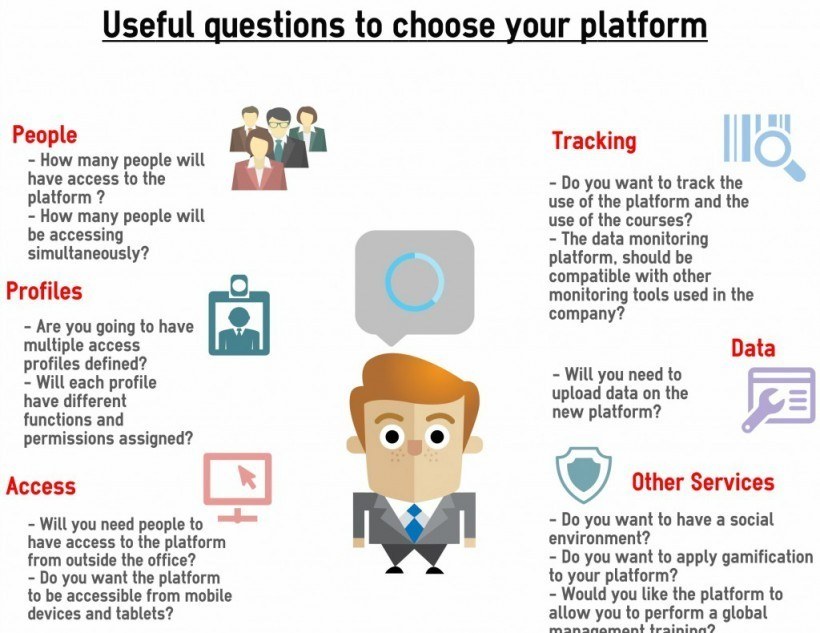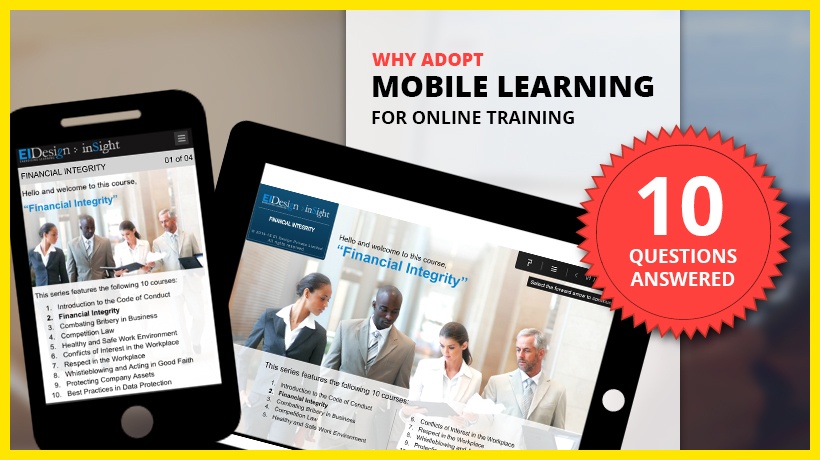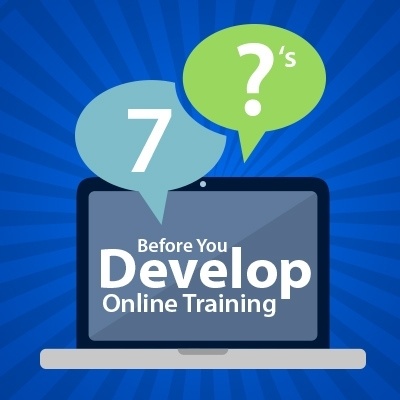Online Training Questions That eLearning Professionals Should Answer To Employees
The most important aspect of designing an online training course, regardless of the subject matter or its primary objectives, is considering the actual training needs of your employees. Instructional designers must be aware of the employees’ expectations and address any concerns they might have before the training truly begins. While employees will have their own specific questions, there are certain questions that must be answered in order to create an effective online training experience for each and every employee.
- Why should I register in this online training course?
In order the employees to become fully engaged in a training event, they must be aware of what the online training course is going to entail. They'll need to know which subject matter will be covered, what skill sets will be developed, and why the online training course will be of benefit to them. When creating the description of your online training course, be sure to offer an overview of the topics being discussed. You may also want to outline which multimedia elements are included throughout the online training course and how the content will be delivered, so that your employees can rest assured that it caters to their specific learning needs and be motivated. In essence, the employees need to understand how the online training course/event is going to help them improve their skills and increase their performance. - How will I apply the knowledge acquired in the workplace?
You could spend countless hours developing your online training course, even going so far as to hire a subject matter expert to create highly informative content. However, it's all for naught if the employees cannot realize how they will actually apply the information acquired. While the quality of your content is of the utmost importance, employees also have to be made aware of how they can put their newly found knowledge to good use. This goes beyond simply listing the topics you'll be covering. In fact, it's often best to create an objective that clearly states how the employees can apply the subject matter once they've completed the online training course. In other words, when developing the description or syllabus for your online training course, let the employees know not only what information they'll be acquiring, but specifically what they can do with that information. “After completing the online training, you will be able to....” or “At the end of the module, you will have the ability to...” are two examples of learning goals that convey the outcome your employee can expect by participating in the online training process. Be as specific as possible. - How will I benefit from the online training experience?
Employees don't necessarily take online training courses because they want to learn more about a particular topic. Instead, they want the benefits that this information can provide in their everyday lives. For example, how will the online training course be of use to them in the workplace, or how will they be able to utilize these new skill sets in the real world? What every employee really wants to know is how the online training course will improve their lives in some way, shape, or form. So, you'll need to be able to articulate the real world implications of your deliverable in detail. You can do this by creating scenarios or simulations that allow employees to see how the subject matter ties into activities, tasks, or situations that they commonly encounter. - How can I be sure that I have learned the content?
Acquiring knowledge is one thing, but proving that you actually know it is a completely different challenge. More often than not, your employees will need to prove either to themselves or to others (i.e. customers, managers) that they have truly took full advantage of the overall online training experience. You can achieve this by integrating assessments, periodic quizzes, or recaps after each module that prompt the employee to reflect upon the subject matter. You can also use scenarios that ask the employees to make choices that have direct consequences or benefits, so that they are able to see how much they have learned and how that newly acquired knowledge translates in the real world. Once they are able to prove to themselves that they know the information, they will be more likely to retain it and recall it for later use. - Which knowledge or skills should I have before taking the online training course?
Aside from what the online training course can offer them, employees also need to know the prerequisites of the online training course. What skills should they already know? What experiences do they need to have in order to get the most out of the training? These questions will allow employees to find the training that is right for them, so that they can participate in online training experiences that are challenging and beneficial. If employees do not meet the necessary requirements, they simply won't find any real value in the training. For example, if they aren't familiar with the professional jargon you are using or haven't developed the necessary skill sets beforehand, they are probably going to find the content to be confusing, difficult, or both. So, be clear about the prior knowledge or skills that are required, to help ensure that you are reaching the appropriate learning audience.
When designing your next online training module, put yourself in the place of the employee. Would the answers you're providing for these critical online training questions prompt you to attend in the online training course or actively participate in the training event? If not, then you may want to go back to the drawing board and rethink your online training strategy.
Now that you've learned about what employees are asking, find out how to effectively analyze your eLearning course audiences. At the 6 Key Questions To Effectively Analyze Your eLearning Course Audiences article I will delve into how to analyze your eLearning course audiences, so that you can develop eLearning deliverables that hit the mark and provide your learners with a meaningful, high impact, and informative eLearning experience.
Last but not least, as an eLearning Developer, motivating learners is an important consideration because in reality learners are not always motivated to learn. They’re busy, they have other things to do, they don’t see the course as being important or have had a bad experience in the past. Would you like to motivate your learners based on the ARCS Model? Check the 12 Questions eLearning Developers Should Answer article to find out more.









